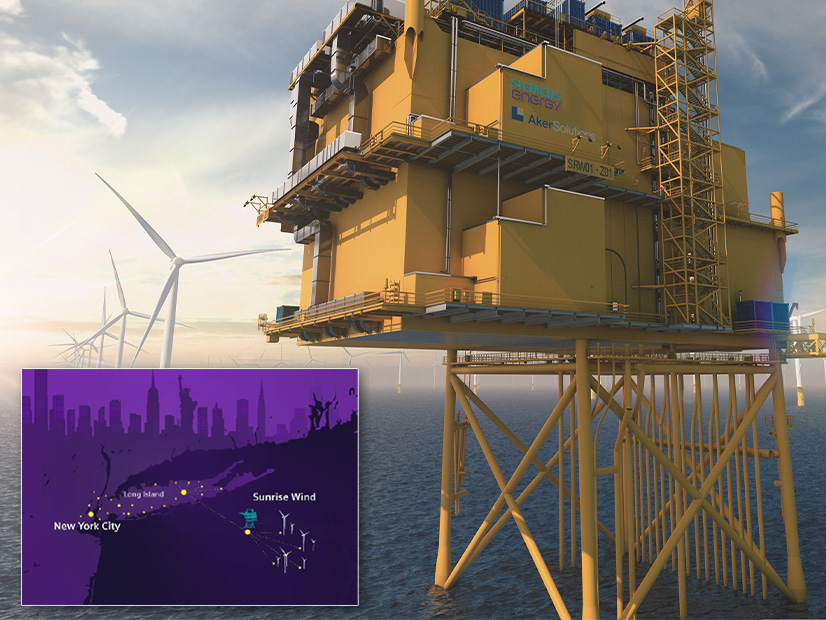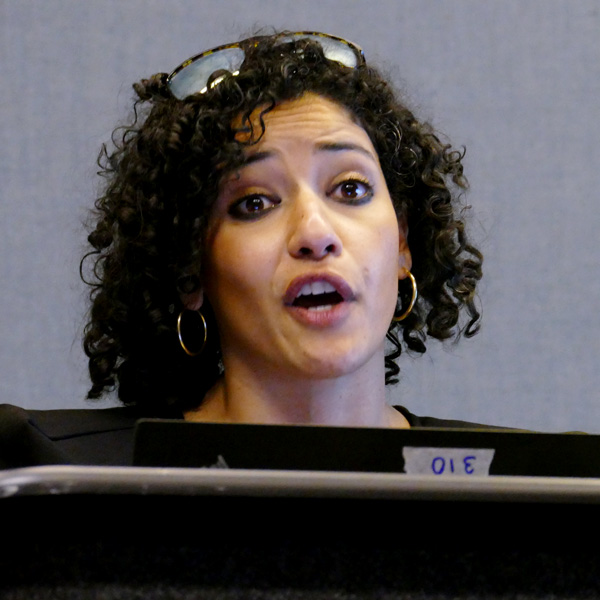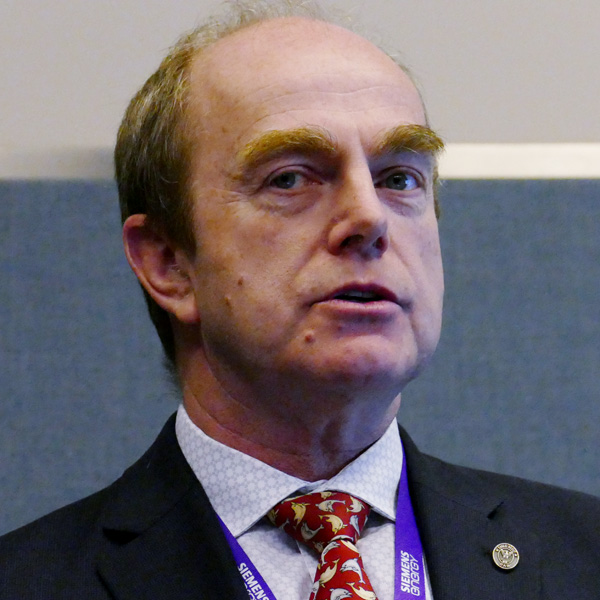
ATLANTIC CITY, N.J. — New York officials told the Business Network for Offshore Wind’s 2022 International Partnering Forum last week that they are considering doubling the state’s initial 9-GW offshore wind target.
 NYSERDA CEO Doreen Harris | © RTO Insider LLC
NYSERDA CEO Doreen Harris | © RTO Insider LLC“One thing we’ll be starting this year is the next Offshore Wind Master Plan, focusing on deep water,” said Doreen Harris, CEO of the New York State Energy Research and Development Authority (NYSERDA). “Because we know … time is not on our side with respect to climate change.”
Laila El-Ashmawy, a project manager with NYSERDA’s OSW team, noted that 9 GW represents a third of the state’s energy demand. “But we’re also considering that that might double” with electrification of transportation and building heating, she said. “And so when we really think about how much offshore wind [we need], we’re not really thinking about this nine-year cycle. We’re thinking about … an economy-wide decarbonization by 2050. So we expect this number to be … on the order of 15 to 20 GW of offshore wind. So, while we know 9 GW is challenging enough to plan for … the totality of those goals are what’s driving our transmission planning.”
Mesh-ready Requirement
The state’s 2021 power grid study concluded the current grid can handle 9 GW of OSW based on radial lines from each wind farm. “To do that, effectively, we need about 6 GW going into New York City, where most of our demand is. And that already starts to trigger a key limitation we have, which is that critical ocean right of way in ecologically sensitive areas: a lot of marine traffic; you have one of the biggest ports in the world, going through the Narrows [the tidal strait separating Staten Island and Brooklyn],” El-Ashmawy said. “So how we are going to get cables even for 6 GW into New York City is super, super challenging.”
 Laila El-Ashmawy, NYSERDA | © RTO Insider LLC
Laila El-Ashmawy, NYSERDA | © RTO Insider LLCThe proposed solution: the mesh-ready concept. “Our projects will still be procured on that radial basis — one offshore wind project, one intertie, one point of interconnection — but we’d like to build them keeping in mind some common assumptions around what might be needed in the future; designing these offshore platforms with enough space to accommodate more equipment. We can’t go back and build it retroactively; [that] becomes much more expensive. So for incremental, upfront, modest costs, we can preserve a lot of optionality in the future,” she said.
NYSERDA’s draft offshore renewable energy credits (ORECs) request for proposals spelled out the technical requirements. “Each platform should be able to connect to two different wind farms. We’d like to be able to transfer around 350 MW of power. And that’s an AC offshore grid, contemplating 230-kV lines for those AC connections,” El-Ashmawy said. “These are not being built today; we’re just building with that in mind. This allows these projects to pivot to a future grid, where projects just in New York are interconnected and can reroute power between zones. But it also allows these to pivot and think about interregional interconnections, which might come in the future.”
El-Ashmawy said the next version of the RFP will provide more detail on the mesh-ready concept and clarification on “what is paid for now and what is paid for later.”
Pete Kohnstam, business development manager for Siemens Energy, said the mesh-ready approach could be risky because of the lack of standardization on what will be required in an offshore grid.
“The risks I see in doing the [mesh-ready] right out of the gate is if we have not got everything defined, is there sufficient space [in the platform]? Is there sufficient equipment in that to make it work?”
1st Offshore HVDC Project in the US
New York’s first OSW project, the 924-MW Sunrise Wind farm south of Long Island, will not be mesh-ready. But it will be the first implementation in the U.S. of an offshore HVDC grid connection.
 Pete Kohnstam, Siemens Energy | © RTO Insider LLC
Pete Kohnstam, Siemens Energy | © RTO Insider LLCSiemens and Aker Solutions were hired by developers Ørsted and Eversource Energy for the project, which will have an offshore converter station to collect the 66-kV AC power from the wind turbines and transform it to 320-kV DC for transmission through a 100-mile export cable. An onshore converter at Holbrook, Long Island, will convert the power back to AC to feed into the distribution grid.
Kohnstam explained the project during a workshop session that attracted dozens of attendees.
“DC obviously offers us lots of opportunities for going that long distance, getting more power into the network with fewer cable connections,” Kohnstam, said. “If you’ve been in several of the other panels and workshops, you’ll hear there’s an awful lot of concern about minimizing cable routes and minimizing access points. And DC is obviously perfect for that. So it’s happening. It’s real.”
